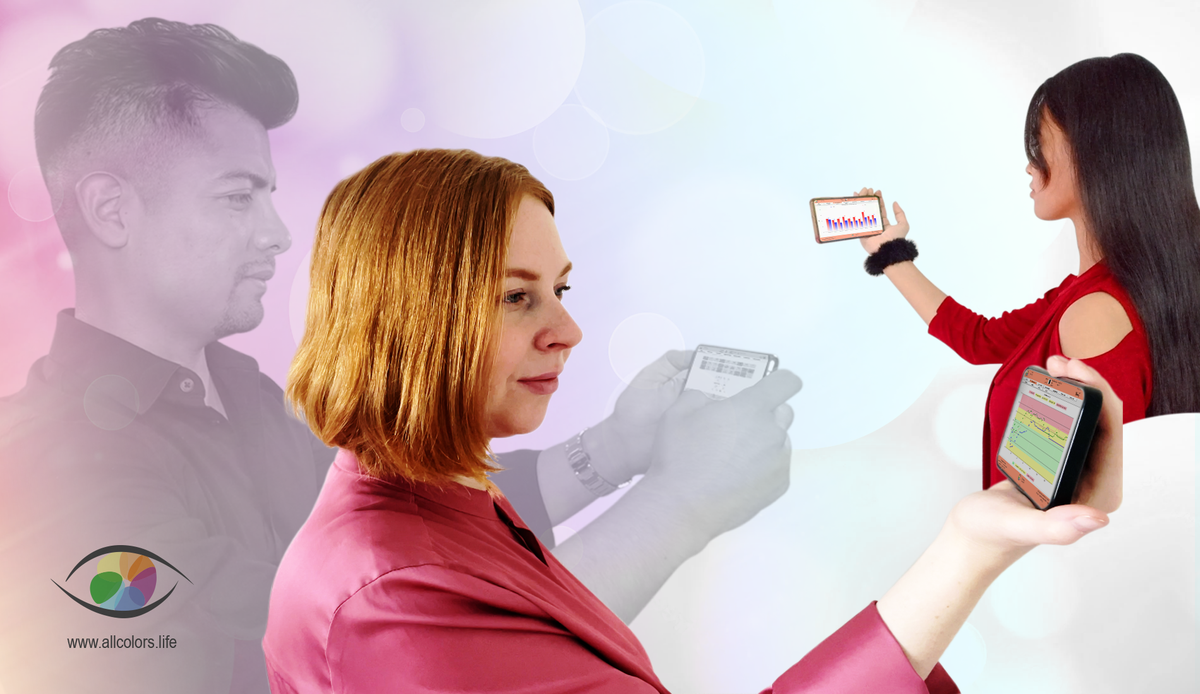«All colors of life»
Neurosis: the silent scourge of modernity
The modern world, with its high rhythm of life and rigid requirements for the person, contributes to the development of neurosis because of constant overstrain, weakening of the nervous system, and malfunctions in biological rhythms. Stress becomes a trigger for various forms of neurosis.
But do not despair - the symptoms of neurosis can be wholly eliminated with the correct and timely treatment. Our qualified specialists will help you return to your whole life, eliminate negative symptoms and learn to effectively manage your emotions.
How to recognize neurosis
- Frequent headaches;
- Feeling of heaviness in the head ("cloudy head");
- Feeling of feeling of being broken down (especially after sleeping);
- Headache of indefinite localization, dizziness;
- Sleep problems are observed in 40% of patients with neuroses: falling asleep takes a long time, waking up often, and sleep is not deep enough, which means that it does not bring pleasure and a feeling of rest even if it lasts long enough;
- Increased fatigue and decreased ability to work;
- General collapse of strength;
- Frequent malaise, which is difficult for patients to describe;
- Hypersensitivity to external stimuli (light, sound, etc.)
- Impaired appetite;
- Sexual dysfunction (frigidity, decreased libido, premature ejaculation in men).
- Mood swings, irritability;
- Obsessive thoughts;
- Often in a bad mood for no reason;
- Doubts - uncertainty in the correctness of the committed or imperfect actions contrary to logical arguments;
- Phobias (fears) - groundless fear of heights, open or confined spaces, crowds of people, sudden death, etc.;
- Frequent feelings of inner tension with a premonition of imminent disaster;
- Conviction of personal social maladjustment, unattractiveness, and inferiority about others;
- An over-exposure to criticism of oneself;
- Reluctance to make contact without the assurance of being liked;
- Avoidance of social or professional activities, connected with considerable social contacts because of fear of criticism, disapproval, and ignoring;
- Tendency to depressive reactions, fears, obsessive fears;
- Depressive memories, pessimistic views of the future, fixation on a traumatic situation;
- Morbid concentration on own health, a tendency to attribute illnesses to themselves for insignificant reasons;
- Violent emotional outbursts, followed by exhaustion;
- Tearfulness: the person often moves to tears.
- Stuttering;
- Sweaty palms and other signs of irritation of the autonomic nervous system;
- Muscle tension and muscle pain;
- Muscle shudders, paresthesias, muscle twitching, "running legs" in sleep;
- Feeling of unsteadiness when walking;
- Neurotic dysfunction of the cardiovascular system: cardialgia and discomfort in the cardiac area, arterial hypertension or hypotension, rhythm disorders (extrasystole, tachycardia), pseudo-coronary syndrome, Raynaud's syndrome, vegetative-vascular dystonia
- Respiratory disorders noted in neurosis are characterized by a feeling of shortness of breath, lump in the throat or choking, neurotic hiccups and yawning, fear of suffocation, imagined loss of respiratory automatism;
- Digestive disorders may include dry mouth, nausea, decreased appetite, vomiting, heartburn, flatulence, vague abdominalgia, diarrhea, constipation, esophageal coma, and dyspeptic symptoms
- Neurotic disorders of the urogenital system cause cystalgia, pollakiuria, itching or pain in the genital area, and enuresis;
- Thermoregulatory disorders result in periodic chills, hyperhidrosis, and sub-febrile fever.
- Dermatological problems - rashes of the type of urticaria, psoriasis, atopic dermatitis - may occur with neurosis;
- Cognitive disorders that often accompany neurosis include forgetfulness, impaired memory, high distractibility, inattention, inability to concentrate, affective type of thinking, and narrowing of consciousness.

Neurosis is the basis of any psychosomatic disease. Psychosomatization (the process whereby the body creates a psychosomatic illness) is the body's defensive reaction.
Psychosomatic diseases
- Allergies
- Bronchial asthma;
- Gastroesophageal reflux;
- Headache and migraine;
- Diabetes;
- Coronary artery disease;
- Hypochondria;
- Colitis;
- Skin conditions (e.g., eczema, psoriasis);
- Menstrual disorders;
- Obesity;
- Panic attacks;
- Sexual health problems;
- Various pains (e.g., back, neck, and abdominal pain);
- Rheumatoid arthritis;
- Sleep problems;
- Ulcer disease.
If you don't treat neurosis, it creates psychosomatic illnesses or makes a person mentally insane! That's why a clinical psychologist is a "borderline psychologist" - he works on the borderline of mental health! Suppose the clinical psychologist doesn't stop the neurosis. In that case, the client will either suffer from psychosomatics all his life, or he will gradually "lose his head" and become a lifelong client of the psychiatrist! You have to be very careful with neurosis and psychosomatics! Treatment of these problems should be entrusted to experienced professionals.
Impulse-color therapy always gives positive results (85 - 94% effectiveness of treatment according to clinical studies!). In addition, it has:
- No contraindications;
- No toxic effect on the body (because they do not take pills!);
- No side effects;
- It combines perfectly with the correct medical treatment and strengthens its positive effect.
 VIP
VIP SCHOOL
SCHOOL Become a PARTNER
Become a PARTNER Investor
Investor
Online consultation
of a medical psychologist
Sign up now!
* I conduct online reception all over the world
+359-896-885-295
WhatsApp Viber Telegram